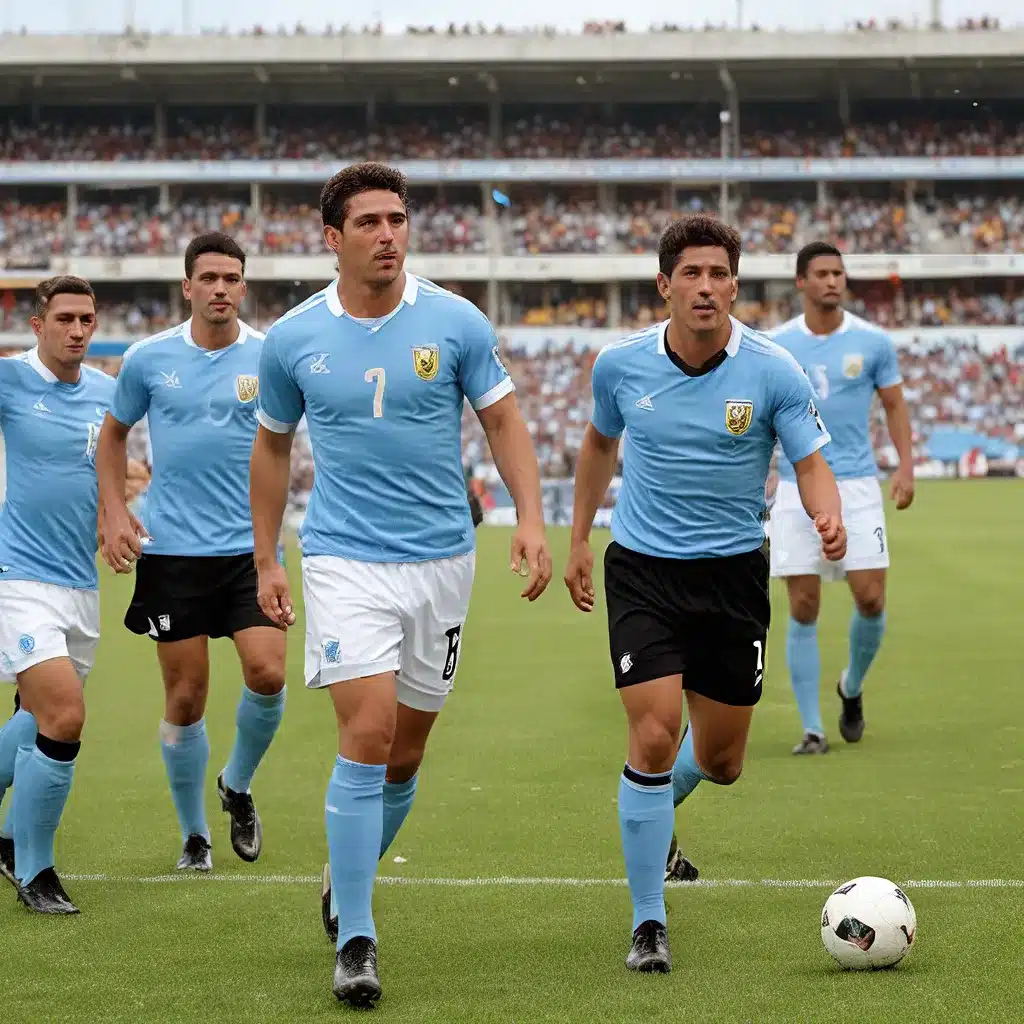
Nestled in the heart of Montevideo, the capital city of Uruguay, the Estadio Centenario stands as a timeless testament to the nation’s enduring love for the beautiful game of football. This iconic stadium, which celebrated its centennial anniversary in 2030, has borne witness to some of the most momentous and thrilling moments in the history of the sport, cementing its place as a revered institution within the Uruguayan psyche.
The Birth of a Football Legacy
The Estadio Centenario was conceived as a grand project to commemorate the 100th anniversary of Uruguay’s independence and its remarkable achievements in the world of football. Constructed in the late 1920s, the stadium’s imposing architectural design, featuring a majestic concrete structure and sweeping grandstands, was a testament to the ambition and vision of its creators.
The construction of the Estadio Centenario was a monumental undertaking, involving the coordination of thousands of workers and the mobilization of significant financial resources. The groundbreaking ceremony, which took place in 1929, was a celebratory event that galvanized the nation’s football enthusiasts and patriots alike.
As the stadium neared completion, the anticipation among Uruguayans grew palpable. The grand opening, which occurred in 1930, was a momentous occasion that captivated the global football community. The inaugural match, a historic encounter between Uruguay and Peru, saw the home team emerge victorious, setting the stage for the legendary status the Estadio Centenario would soon attain.
The Centenario’s Crowning Achievement
The pinnacle of the Estadio Centenario’s illustrious history came in 1930, when it was selected to host the inaugural FIFA World Cup. This prestigious event, which brought together the greatest football teams from around the world, cemented the stadium’s reputation as a premier destination for the sport.
The 1930 World Cup was a landmark moment in the history of football, and the Estadio Centenario played a central role in this momentous occasion. The thrilling matches, the passionate fans, and the electric atmosphere all contributed to the enduring legacy of this iconic stadium.
Uruguay’s home team, led by the legendary Héctor Scarone, captivated the global audience with their skillful and attacking brand of football. The triumphant victory of the Uruguayan squad in the final, which was held at the Estadio Centenario, cemented their status as the first World Cup champions and solidified the stadium’s place in the annals of football history.
The Estadio Centenario’s Enduring Legacy
The Estadio Centenario’s significance extends far beyond its role as the host of the inaugural World Cup. Over the decades, it has witnessed a plethora of iconic moments, from nail-biting derby matches between Uruguay’s renowned clubs to historic international encounters that have captivated football enthusiasts around the world.
The stadium’s grandeur and atmosphere have become synonymous with the passion and pride of the Uruguayan people. Visitors to the Estadio Centenario are immediately struck by the sense of history and tradition that permeates the iconic structure.
The meticulous preservation of the stadium’s architectural features, combined with the ongoing maintenance and modernization efforts, have ensured that the Estadio Centenario continues to captivate football enthusiasts and casual fans alike.
Embracing the Future
As the Estadio Centenario celebrates its centennial anniversary, Uruguay and the global football community reflect on the remarkable journey of this iconic stadium. While firmly rooted in the past, the Estadio Centenario looks to the future with a steadfast commitment to innovation and excellence.
Ongoing initiatives and investments aim to enhance the spectator experience, incorporating state-of-the-art technology and sustainable practices that align with the evolving demands of the modern football landscape.
As the Estadio Centenario continues to captivate audiences and host prestigious events, it serves as a testament to the enduring power of football to unite communities, inspire generations, and transcend the boundaries of time and space.

